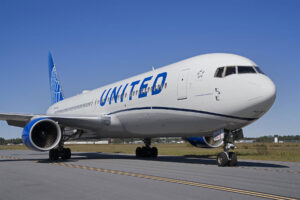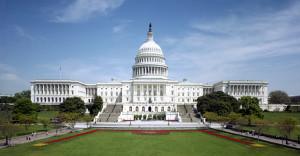Incident at JNB [BA 744 G-BNLL collides with building]
#421
Moderator, Iberia Airlines, Airport Lounges, and Ambassador, British Airways Executive Club
Join Date: Feb 2010
Programs: BA Lifetime Gold; Flying Blue Life Platinum; LH Sen.; Hilton Diamond; Kemal Kebabs Prized Customer
Posts: 64,009
#422
Join Date: Nov 2011
Posts: 1,866
The flashpoint for Jet-A is potentially 38c and above. Here is the MSDS for BP's Jet A which gives a full breakdown of the control needed in this situation, see sections 6 and 10.
 washes over me....
washes over me....
#423
Moderator, Iberia Airlines, Airport Lounges, and Ambassador, British Airways Executive Club
Join Date: Feb 2010
Programs: BA Lifetime Gold; Flying Blue Life Platinum; LH Sen.; Hilton Diamond; Kemal Kebabs Prized Customer
Posts: 64,009
Sorry to hear that, here is a copy I put on to Google Docs:
http://drive.google.com/file/d/0BxQx...it?usp=sharing
http://drive.google.com/file/d/0BxQx...it?usp=sharing
#424
Join Date: Nov 2011
Posts: 1,866
Sorry to hear that, here is a copy I put on to Google Docs:
http://drive.google.com/file/d/0BxQx...it?usp=sharing
http://drive.google.com/file/d/0BxQx...it?usp=sharing

#425
Join Date: Apr 2012
Location: Swindon UK
Programs: BAEC, FB, QANTAS, IHG, Hilton, Marriott, AVIS Preferred, MRAeS
Posts: 813
Jet A1 takes some effort to ignite. With that said there are still strict rules regarding refuelling and when fuel tanks are open for maintenance. During refuel there are restrictions on what can be done while fuelling is taking place. Radio transmissions and APU starting and stopping for example.
I have been involved in several fuel related incidents, the most hazardous being a failed seal in an air to air refuelling probe (during a pressure test on the ground) resulting in fuel pouring into the flight deck through the circuit breaker panels.
I have heard stories of accidents/explosions through negligence but nothing factual to hand. I do seem to recall a 747 mid air years ago which was thought to be a tank explosion??
I have been involved in several fuel related incidents, the most hazardous being a failed seal in an air to air refuelling probe (during a pressure test on the ground) resulting in fuel pouring into the flight deck through the circuit breaker panels.
I have heard stories of accidents/explosions through negligence but nothing factual to hand. I do seem to recall a 747 mid air years ago which was thought to be a tank explosion??
#426
A FlyerTalk Posting Legend
Join Date: Aug 2006
Location: Argentina
Posts: 40,225
The China Airlines fire in Japan shows how quickly things can go wrong.
https://www.youtube.com/watch?v=-qyZFASOAe0
https://www.youtube.com/watch?v=-qyZFASOAe0
#427
Join Date: Sep 2013
Location: A hop, skip and jump away from MAN.
Programs: BAEC Gold, ex-VS Gold, ex-UA Gold, Premier Inn Platinum-Iridium
Posts: 1,114
But, this shows the various conditions that have to be met for aviation kerosene to catch fire.
Cheers,
Mike
#428
Join Date: Apr 2012
Location: Swindon UK
Programs: BAEC, FB, QANTAS, IHG, Hilton, Marriott, AVIS Preferred, MRAeS
Posts: 813
There was a refuelling accident in Denver involving G-VIIK back in 2001 where fuel leaked out during the refuelling operation and caught fire - the pressure from the refuelling causing sufficient atomisation, and obviously there was some sort of heat present for ignition to occur. Killed the fueller, sadly.
But, this shows the various conditions that have to be met for aviation kerosene to catch fire.
Cheers,
Mike
But, this shows the various conditions that have to be met for aviation kerosene to catch fire.
Cheers,
Mike
#429
Join Date: Apr 2012
Location: LCY is always preferred
Programs: BAEC Gold, IHG Silver, HHonors Gold
Posts: 1,033
On the China Airlines fire, why did it take the fire crews so long to get there?
#430
Join Date: Oct 2012
Location: Helvetia
Programs: AS; BA Silver; UA; HH Gold; Spr�ngli Connaisseur
Posts: 2,919
Here's a link to the MSDS for Jet-A http://www.setonresourcecenter.com/m.../025/BPFXN.HTM
I was told long ago by some aviation industry engineer the following: Commercial jet engines can burn pretty much any fuel. Jet-A is the cheapest fuel they can burn so that's what they burn. Diesel is more expensive, and more reactive than Jet-A.
It's been quite awhile since I've talked with a fuels expert, so I might not be 100% correct on this. But I remember being quite surprised, as I though Jet fuel was some high-tech fuel.
I was told long ago by some aviation industry engineer the following: Commercial jet engines can burn pretty much any fuel. Jet-A is the cheapest fuel they can burn so that's what they burn. Diesel is more expensive, and more reactive than Jet-A.
It's been quite awhile since I've talked with a fuels expert, so I might not be 100% correct on this. But I remember being quite surprised, as I though Jet fuel was some high-tech fuel.
#431
Join Date: Apr 2012
Location: Swindon UK
Programs: BAEC, FB, QANTAS, IHG, Hilton, Marriott, AVIS Preferred, MRAeS
Posts: 813
Here's a link to the MSDS for Jet-A http://www.setonresourcecenter.com/m.../025/BPFXN.HTM
I was told long ago by some aviation industry engineer the following: Commercial jet engines can burn pretty much any fuel. Jet-A is the cheapest fuel they can burn so that's what they burn. Diesel is more expensive, and more reactive than Jet-A.
It's been quite awhile since I've talked with a fuels expert, so I might not be 100% correct on this. But I remember being quite surprised, as I though Jet fuel was some high-tech fuel.
I was told long ago by some aviation industry engineer the following: Commercial jet engines can burn pretty much any fuel. Jet-A is the cheapest fuel they can burn so that's what they burn. Diesel is more expensive, and more reactive than Jet-A.
It's been quite awhile since I've talked with a fuels expert, so I might not be 100% correct on this. But I remember being quite surprised, as I though Jet fuel was some high-tech fuel.
EDIT: By the same token, up in the Arctic Circle (BDU) Norwegian diesel military vehicles use Jet A1/Jet A1+
Last edited by vibrex; Dec 29, 2013 at 1:09 pm Reason: Addition
#432
Join Date: Apr 2012
Location: Swindon UK
Programs: BAEC, FB, QANTAS, IHG, Hilton, Marriott, AVIS Preferred, MRAeS
Posts: 813
The stories I had heard were caused by electrical problems too.
#433
Join Date: Dec 2012
Posts: 3,229
Very similar to the Thai 737 at Don Muang in 2001. Have a look at this link to see how the press reported the story. http://www.b737.org.uk/thai737news.htm
Quotes from supposed 'experts' are available in other reports should you wish to expand. As usual the investigation finds the real cause, but none of the now discredited 'experts' are available for comment.
NGS or Nitrogen Generating Systems are now very common for centre tanks.
For the 777 the following fuels are permitted
Quotes from supposed 'experts' are available in other reports should you wish to expand. As usual the investigation finds the real cause, but none of the now discredited 'experts' are available for comment.
NGS or Nitrogen Generating Systems are now very common for centre tanks.
Yes you were informed correctly. For the most part though a jet engine will run on most anything. The Russians dabbled with hydrogen years ago and I seem to recall the use of coal dust in the early (experimental) days, would have to check on that. There are a couple of aircraft that need more specialist fuels, the SR71 being one of those. There are other fuels available, in colder countries (Canada) Jet B is available which is definitely more hazardous. Some manufacturers don't authorise its use however.
EDIT: By the same token, up in the Arctic Circle (BDU) Norwegian diesel military vehicles use Jet A1/Jet A1+
EDIT: By the same token, up in the Arctic Circle (BDU) Norwegian diesel military vehicles use Jet A1/Jet A1+
For the 777 the following fuels are permitted
The following fuels and mixtures thereof are approved for use:
Jet A and Jet A-1 as specified in ASTM-D1655
JP-5 as specified in MIL-DTL-5624
JP-8 as specified in MIL-DTL-83133
Jet A and Jet A-1 as specified in ASTM-D1655
JP-5 as specified in MIL-DTL-5624
JP-8 as specified in MIL-DTL-83133
Last edited by Sigwx; Dec 29, 2013 at 1:40 pm
#434
Join Date: Oct 2012
Location: Helvetia
Programs: AS; BA Silver; UA; HH Gold; Spr�ngli Connaisseur
Posts: 2,919
The chat I had with the fuels guy was before the 777 was designed.
I think that the engines can probably burn more types of fuel than what they're certified for. And, I'd imagine that there's an ETOPS component with the fuel as well.
Given that it's likely that Jet Fuel is probably going to be what the airlines are using, I wouldn't expect the engine manufacturers to certify for fuels that the engines are unlikely to burn.
I wonder if there are different fuel options for the GE90 and the RR Trent 800. I'd guess that there aren't.
I think that the engines can probably burn more types of fuel than what they're certified for. And, I'd imagine that there's an ETOPS component with the fuel as well.
Given that it's likely that Jet Fuel is probably going to be what the airlines are using, I wouldn't expect the engine manufacturers to certify for fuels that the engines are unlikely to burn.
I wonder if there are different fuel options for the GE90 and the RR Trent 800. I'd guess that there aren't.
#435
Join Date: Apr 2012
Location: Swindon UK
Programs: BAEC, FB, QANTAS, IHG, Hilton, Marriott, AVIS Preferred, MRAeS
Posts: 813
Very similar to the Thai 737 at Don Muang in 2001. Have a look at this link to see how the press reported the story. http://www.b737.org.uk/thai737news.htm
Quotes from supposed 'experts' are available in other reports should you wish to expand. As usual the investigation finds the real cause, but none of the now discredited 'experts' are available for comment.
NGS or Nitrogen Generating Systems are now very common for centre tanks.
Quotes from supposed 'experts' are available in other reports should you wish to expand. As usual the investigation finds the real cause, but none of the now discredited 'experts' are available for comment.
NGS or Nitrogen Generating Systems are now very common for centre tanks.
Last edited by vibrex; Dec 29, 2013 at 2:11 pm Reason: Re Insert Quote Marks




















